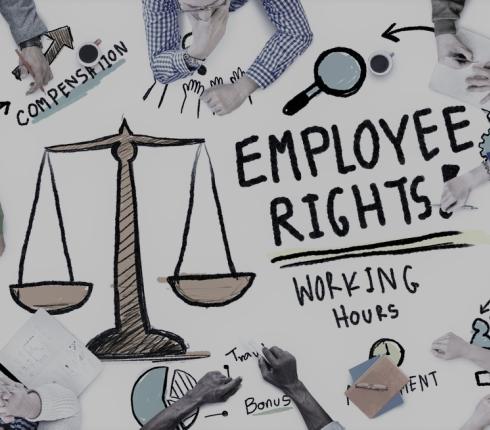NJORD Estonia: I don't want to go to work!
It’s likely that many of us have either thought or admitted out loud, that they don’t feel like going to work. This may simply be due to physical fatigue. Or sometimes you have just had enough. Enough of all the rules and the routine.
An employee is significantly more effective and satisfied when they get to choose their working time and workplace. The rules that regulate the traditional employment relationship are clearly lagging behind the so-called technology era. At least some rules should be made more flexible. People should be given more choices about how to perform the agreed work.
Your own company?
One way to gain freedom in your work life is to start a business and work for yourself or provide services through your own company. There is no shortage of these kinds of success stories and it undoubtedly one possible option. It’s easy to start a company. And you shouldn’t immediately think of fishy company schemes. Providing services through a company can be legitimate. If the order and service are clearly regulated between the parties, both can benefit.
Then again, there are still people, who wish to work under someone. Not all jobs can be done in the form of entrepreneurship – e.g. a nurse can’t sell their services through their own private company. However, it is a viable option for software developers, accountants, marketing specialists, project managers etc.
Different possibilities exist to solve different situations. Since some people appreciate freedom and independence, authorisation agreements or service contracts could be great alternatives for the usual employment contract. Projects or events can be organized from a distance.
Depending on the nature of the work, an employee can use telecommuting as an alternative to working from nine to five. it’s important to note though, that if an employee performs their work duties outside the employer’s location, it’s important to agree on a number of important issues: mainly working time, security of e-services, keeping trade secrets and the prohibition on competition, proprietary liability, safety etc. Allowing employees to take at least one day a week to telecommute can significantly reduce the percentage of employees who come to work unwillingly.
Flexible employment relationships!
Open hours
Inevitably, the classic employment relationship will not disappear, and it would be naïve to assume that the relevant directives will be radically changed. However, changes could be made at a national level to encourage flexible working. This will benefit both the employees and employers.
In an employment relationship, the employer and employee should be free to agree on open working hours. In other words, there should be no obligation to establish a standard for working time for the employee. Salary would be paid based on the actual hours, i.e. the employee will ensure that the working hours are based on the amount of work and the salary is paid for the hours actually worked.
In such cases, the employer wouldn’t have to pay for the hours when no work was done by the employee. That would give both sides the freedom to organize their activities. This form of employment would only be valid if both parties agree to it and wouldn’t eliminate the possibility to have a traditional employment relationship at the same time. The agreement must be clear, and the rights, obligations and responsibilities must be strictly regulated. Both parties are likely to benefit from such an agreement.
Short term work assignments under the contractor’s responsibility
In today’s business environment, there is no point in spending time on hiring people to perform short term assignments. By the time a suitable employee is found, and the contract is concluded, the need for them has already past. Nowadays, it’s possible to use specific online portals that match employers and work seekers. Such short-term working relationships shouldn’t automatically be considered as employment relationships but instead as a service, where the contractor is responsible for their own actions. The contractor knows that, amongst other things, they are taking on responsibility for their health and safety. Such working relationships could, for example, last for up to two weeks. Employment contracts that the law allows to conclude orally, due to their duration, should be concluded as authorisation agreements. For example, if a bus company needs to have a bus cleaned, a job that takes about 2 hours, they should conclude a fixed-term employment contract, carry out a thorough safety training, calculate holiday pay, etc. The time spent on performing the task and the time spent on hiring an employee and terminating the working relationship afterward are not proportionate.
New colleague – A.I
An artificial intelligence, that will do our jobs for us in the future, can work as long as its batteries are charged. So, the employer doesn’t have to worry about a bored and tired A.I. in the future: the robot will never get tired, will never get bored and will perform all assignments with a smile, if programmed accordingly. Its working time will not be restricted by directives but instead the capacity of its battery. That’s something to think about!































